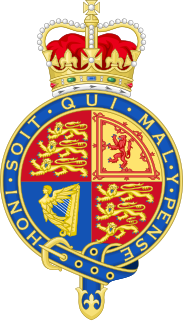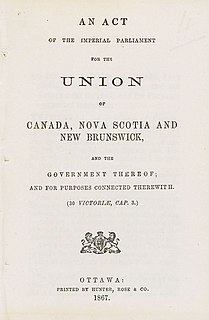Background
During the 1970s, one of Saskatchewan's biggest industry was potash mining. Much of it was run by American mining companies that would export it to the US. The recently elected New Democratic Party (NDP) provincial government of Allan Blakeney enacted the Mineral Taxation Act and the Potash Reserve Regulations that effectively taxed the companies for their mining.
The mining companies sought to reclaim the tax that they had paid over the years. They made a Constitutional challenge against the Act on the grounds that the taxes were ultra vires the authority of the provincial government as taxation of this type was a matter for the federal government.
The provincial government sought refuge under section 5(7) of the Saskatchewan Proceedings Against the Crown Act, which barred recovery in just such an event. It stated that "the province's liability is limited in respect of things done or omitted in the exercise of power or authority under an ultra vires enactment".
The issue before the Court was whether the immunity clause, exempting itself from paying back money gained through invalid law, was valid law.
Section 33 of the Canadian Charter of Rights and Freedoms is part of the Constitution of Canada. It is commonly known as the notwithstanding clause, or as the override power, and it allows Parliament or provincial legislatures to temporarily override certain portions of the Charter.
Brushaber v. Union Pacific Railroad Co., 240 U.S. 1 (1916), was a landmark United States Supreme Court case in which the Court upheld the validity of a tax statute called the Revenue Act of 1913, also known as the Tariff Act, Ch. 16, 38 Stat. 166, enacted pursuant to Article I, section 8, clause 1 of, and the Sixteenth Amendment to, the United States Constitution, allowing a federal income tax. The Sixteenth Amendment had been ratified earlier in 1913. The Revenue Act of 1913 imposed income taxes that were not apportioned among the states according to each state's population.
Canadian federalism involves the current nature and historical development of the federal system in Canada.

Same-sex marriage in Alberta has been legal since July 20, 2005, upon the granting of royal assent to the federal Civil Marriage Act. Alberta was one of the four Canadian provinces and territories where same-sex marriage had not been legalised prior to the enactment of the Civil Marriage Act, along with Prince Edward Island, the Northwest Territories and Nunavut.
Pith and substance is a legal doctrine in Canadian constitutional interpretation used to determine under which head of power a given piece of legislation falls. The doctrine is primarily used when a law is challenged on the basis that one level of government has encroached upon the exclusive jurisdiction of another level of government.

Ultra vires is a Latin phrase used in law to describe an act which requires legal authority but is done without it. Its opposite, an act done under proper authority, is intra vires. Acts that are intra vires may equivalently be termed "valid", and those that are ultra vires termed "invalid".
Canadian constitutional law is the area of Canadian law relating to the interpretation and application of the Constitution of Canada by the courts. All laws of Canada, both provincial and federal, must conform to the Constitution and any laws inconsistent with the Constitution have no force or effect.

R v Morgentaler was a decision by the Supreme Court of Canada invalidating a provincial attempt to regulate abortions in Canada. This followed the 1988 decision R. v. Morgentaler, which had struck down the federal abortion law as a breach of section 7 of the Canadian Charter of Rights and Freedoms. In 1993, the provincial regulations were ruled to be a criminal law, which would violate the Constitution Act, 1867. That Act assigns criminal law exclusively to the federal Parliament of Canada.

British Columbia v Imperial Tobacco Canada Ltd, [2005] 2 S.C.R. 473, 2005 SCC 49, is a decision of the Supreme Court of Canada where the Court found that the provincial Tobacco Damages and Health Care Costs Recovery Act, which allowed the government to sue tobacco companies, was constitutionally valid. Imperial Tobacco Canada is an indirect subsidiary of British American Tobacco.

Reference Re Alberta Statutes, also known as the Alberta Press case and the Alberta Press Act Reference, is a landmark reference of the Supreme Court of Canada where several provincial laws, including one restricting the press, were struck down and the existence of an implied bill of rights protecting civil liberties such as a free press was first proposed.

Quong Wing v R is a famous Supreme Court of Canada decision where the Court upheld a provincial law that discriminated against the Chinese.
In Canadian constitutional law, the doctrine of paramountcy establishes that where there is a conflict between valid provincial and federal laws, the federal law will prevail and the provincial law will be inoperative to the extent that it conflicts with the federal law. Unlike interjurisdictional immunity, which is concerned with the scope of the federal power, paramountcy deals with the way in which that power is exercised.

Multiple Access Ltd v McCutcheon is a leading constitutional decision of the Supreme Court of Canada on the resolution of overlapping federal and provincial laws under the doctrine of double aspect.

Quebec (AG) v Blaikie , [1979] 2 S.C.R. 1016 is a leading decision of the Supreme Court of Canada on language rights in the Constitution Act, 1867. The Court held that the sections of Quebec's Charter of the French Language, which required that provincial laws be enacted in French only, violated section 133 of the Constitution Act, 1867.
Because the country contains two major language groups and numerous other linguistic minorities, in Canada official languages policy has always been an important and high-profile area of public policy.

Canadian Western Bank v Alberta [2007] 2 S.C.R. 3 is a landmark decision in Canadian constitutional law by the Supreme Court of Canada (SCC) relating to the division of powers between Federal and Provincial legislative bodies.
In Canada, the term quasi-constitutional is used for laws which remain paramount even when subsequent statutes, which contradict them, are enacted by the same legislature. This is the reverse of the normal practice, under which newer laws trump any contradictory provisions in any older statute.
Kingstreet Investments Ltd v New Brunswick [2007] 1 SCR 3 is a Canadian unjust enrichment case, concerning to what extent enrichment of the defendant must be at the expense of the claimant.

Newfoundland and Labrador v AbitibiBowater Inc, 2012 SCC 67 is a ruling by the Supreme Court of Canada dealing with whether an obligation incurred under regulatory action constitutes a claim under the Companies' Creditors Arrangement Act, thus becoming subject to a stay of proceedings.

Attorney General for Quebec v. Queen Insurance Company is a Canadian constitutional law decision dealing with the taxation and licensing powers of the provinces under the federal-provincial division of powers.





